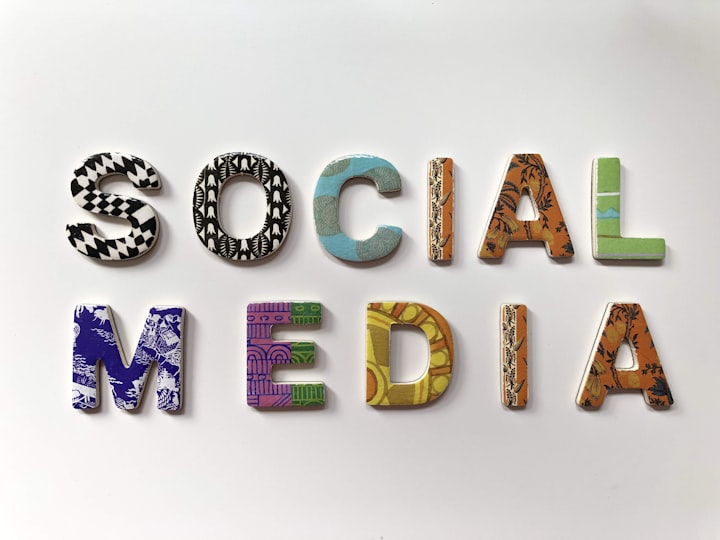The Dark Side of Social Media: How it Affects Our Mental Health
Navigating the Psychological Impact of Social Media on Our Well-being
The rise of social media has brought about a revolution in the way we communicate, share information, and connect with others. With billions of people around the world using social media platforms like Facebook, Twitter, Instagram, and TikTok, these platforms have become an integral part of our daily lives. While social media has brought many benefits, it has also raised concerns about its impact on our mental health.
The purpose of this article is to explore the impact of social media on mental health. We will begin by defining social media and mental health, highlighting their importance and discussing their relationship. Then, we will examine the various ways in which social media affects mental health, including the potential negative effects and positive benefits. Finally, we will offer some tips on how to use social media in a healthy way to mitigate its potential negative effects.
Social Media & Mental Health
Social media refers to web-based platforms that allow individuals to create and share content, communicate with others, and participate in social networking. Mental health, on the other hand, refers to the psychological and emotional well-being of an individual. It encompasses a range of factors, including one's thoughts, feelings, and behaviors, and can be influenced by various environmental, biological, and social factors.
The relationship between social media and mental health is complex, with research showing both positive and negative effects. On one hand, social media can provide social support, promote self-expression, and offer a sense of community. On the other hand, it can also lead to feelings of social isolation, anxiety, depression, and cyberbullying.
As such, it is important to examine the impact of social media on mental health and to develop strategies for promoting healthy use of social media. In the following sections, we will delve deeper into the impact of social media on mental health, exploring both the potential negative effects and positive benefits.
The Good: Discussing the positive aspects of social media on mental health
While there are certainly negative aspects of social media on mental health, it's also important to acknowledge the positive impact it can have. One of the most significant ways social media can positively impact mental health is through the access to support groups and mental health resources.
With social media, individuals can connect with others who have had similar experiences, whether it's dealing with anxiety, depression, or other mental health issues. There are many online support groups and forums where people can discuss their struggles and offer each other encouragement and support. This can be particularly helpful for those who may feel isolated in their struggles or who live in areas where there are few mental health resources available.
In addition to support groups, social media can also provide access to a wealth of mental health resources. Many organizations and mental health professionals have created online resources such as blogs, videos, and infographics that offer tips and advice for managing mental health issues. Social media platforms themselves have also recognized the importance of mental health and have created features to promote self-care, such as mindfulness exercises and tools to monitor screen time.
Another positive aspect of social media is its ability to raise awareness and reduce stigma surrounding mental health. By sharing stories and experiences related to mental health, individuals can help to normalize conversations around these topics and reduce the shame that often accompanies mental illness. Social media can also provide a platform for mental health advocates and organizations to share important information about mental health and promote initiatives aimed at improving access to mental health care.
The Bad: Addressing the negative impact of social media on mental health
While social media has undoubtedly brought numerous benefits to society, it is also important to recognize the negative impact it can have on mental health. Cyberbullying is one such issue that has gained significant attention in recent years, with studies showing that it can have serious and long-lasting effects on mental health. Cyberbullying can take various forms, including name-calling, spreading rumors, and posting hurtful comments, images or videos. Victims of cyberbullying often experience feelings of isolation, anxiety, depression, and even suicidal ideation.
Another negative impact of social media on mental health is the phenomenon of FOMO (Fear of Missing Out). Social media platforms are designed to showcase the best of people's lives, which can create unrealistic expectations and lead to feelings of inadequacy in those who compare themselves to others. This can lead to a sense of exclusion, loneliness, and a constant need to keep up with others. The constant barrage of images and updates can also be overwhelming, leading to increased levels of stress and anxiety.
Addiction to social media is another growing concern, especially among young people. Studies have found that excessive use of social media can lead to addiction-like symptoms, including cravings, withdrawal symptoms, and loss of control. This can have a significant impact on mental health, with excessive social media use being linked to increased levels of depression, anxiety, and loneliness.
As individuals, it is important to be mindful of our social media use, to take breaks when necessary, and to seek help when needed. As a society, we must work towards creating a safer and healthier digital environment, with measures in place to prevent cyberbullying and support those who are struggling with mental health issues related to social media use.
Comparison to Traditional Media
When it comes to mental health, traditional media and social media can have vastly different impacts. Traditional media, such as television and print media, typically offer a more controlled and curated content experience. Social media, on the other hand, is often more unfiltered and user-generated, allowing for more varied and potentially unpredictable content.
One key difference between traditional and social media is the level of control users have over their exposure to content. With traditional media, viewers or readers have a limited degree of control over what they see or read. They can change the channel or put down the newspaper, but they cannot customize the content to suit their individual preferences. This can be both positive and negative: while it can protect users from exposure to harmful or triggering content, it can also limit their access to valuable information or diverse perspectives.
Social media, on the other hand, offers users a high degree of control over the content they see. Users can follow or unfollow accounts, join or leave groups, and curate their feeds to prioritize certain types of content. However, this can also create an "echo chamber" effect, where users only see content that reinforces their existing beliefs and biases. This can contribute to a sense of isolation or exclusion and may exacerbate existing mental health issues.
Another difference between traditional and social media is the level of engagement they offer. Traditional media is often a passive experience, with viewers or readers consuming content without necessarily interacting with it. Social media, on the other hand, is highly interactive, with users able to comment, like, share, and create content themselves. While this can be empowering and provide a sense of community, it can also lead to a pressure to constantly engage and seek validation from others, which can negatively impact mental health.
Lastly, social media can be accessed at any time and from any place, which can make it difficult for users to disconnect and take breaks. Traditional media, on the other hand, is more limited in its accessibility, with set broadcast or publication times. This can make it easier for users to set boundaries and prioritize their mental health needs.
Social Media Addiction
In recent years, social media has become an integral part of our daily lives. It has changed the way we interact, communicate, and consume information. However, with the increasing use of social media comes the risk of addiction, which can have negative effects on our mental health.
Social media addiction is a term used to describe excessive use of social media platforms, which can lead to various negative outcomes, including poor sleep, anxiety, depression, and low self-esteem. The constant need to check notifications, scroll through news feeds, and stay updated on the latest trends can be overwhelming and time-consuming.
Research has shown that social media addiction can have a significant impact on mental health. A study published in the Journal of Social and Clinical Psychology found that social media use can increase feelings of loneliness and anxiety, leading to symptoms of depression. Similarly, another study found that excessive social media use can lead to poor sleep quality, which can contribute to mood disorders such as anxiety and depression.
One reason why social media addiction can be so damaging to mental health is the constant comparison to others. Social media platforms often present an idealized version of reality, which can lead to feelings of inadequacy and low self-esteem. The constant comparison to others can also contribute to the development of anxiety and depression.
Another reason why social media addiction can be harmful is the impact on real-life relationships. Spending excessive amounts of time on social media can lead to decreased face-to-face interactions, which are essential for maintaining healthy relationships. This lack of social support can contribute to feelings of loneliness and isolation.
It is important to note that social media addiction is not a formally recognized disorder, but it is a growing concern among mental health professionals. To address social media addiction, it is essential to recognize the signs and symptoms, including spending excessive amounts of time on social media, using social media to avoid negative emotions, and feeling anxious or irritable when unable to access social media.
To mitigate the negative effects of social media addiction, it is essential to take steps to limit social media use. This can include setting boundaries, such as limiting social media use to a certain time of day or disabling notifications. It is also essential to engage in activities that promote mental and emotional well-being, such as exercise, spending time with friends and family, and engaging in hobbies.
How social media Affects Different Age Groups
Social media has a profound impact on the mental health of individuals across all age groups. However, the impact may vary based on the individual's age and their stage in life. Let's take a closer look at how social media affects different age groups, including children, teenagers, and adults.
Children:
With the advancement of technology, children are now exposed to social media at a younger age. While social media can have some benefits for children, such as the opportunity to learn and connect with others, it can also have some detrimental effects. Studies have shown that social media use among children can lead to lower self-esteem, anxiety, depression, and poor sleep quality. Moreover, children may be vulnerable to cyberbullying, which can have lasting effects on their mental health.
Teenagers:
Social media is an integral part of teenagers' lives. While it can provide a platform for self-expression and connection with peers, it can also lead to negative impacts on mental health. Studies have shown that excessive social media use can lead to higher rates of anxiety, depression, and poor sleep quality among teenagers. Furthermore, the pressure to present a perfect image on social media can lead to self-esteem issues and body image concerns. Cyberbullying is also prevalent among teenagers, and it can have severe impacts on mental health, including anxiety and depression.
Adults:
While social media has many benefits for adults, such as staying connected with friends and family, it can also lead to negative impacts on mental health. Studies have shown that excessive social media use can lead to higher rates of anxiety, depression, and poor sleep quality among adults. Furthermore, social media can contribute to feelings of FOMO (fear of missing out), which can lead to stress and anxiety. Social media can also contribute to the development of addictive behaviors, leading to issues such as decreased productivity and social isolation.
Social Media and the Future of Mental Health
Social media has had a profound impact on our daily lives, and its influence is only set to grow in the future. While there are concerns about its effects on mental health, there is also a growing recognition of its potential to be used as a tool for positive change.
One area where social media is already making a difference is in the field of mental health. Many people are turning to social media platforms for information and support, and mental health organizations are using these platforms to reach out to those in need. For example, there are now mental health-focused social media apps that provide users with access to mental health resources, support groups, and virtual therapy sessions.
The future of mental health and social media looks promising, with many new developments on the horizon. One area where social media is already making a difference is in the use of artificial intelligence (AI) to improve mental health care. AI is being used to develop chatbots that can provide support to those in need, as well as algorithms that can analyze social media activity to detect signs of mental illness and intervene before a crisis occurs.
Another promising development is the use of virtual reality (VR) and augmented reality (AR) in mental health treatment. VR and AR can provide immersive experiences that can help patients confront their fears and anxieties in a safe and controlled environment. These technologies can also be used to provide therapy to those who live in remote or underserved areas, improving access to mental health care for all.
Social media also has the potential to be used as a tool for destigmatizing mental illness. By promoting open and honest discussions about mental health on social media platforms, we can reduce the shame and isolation that often comes with mental illness. Social media can also be used to share stories of recovery and hope, helping those who are struggling to see that they are not alone.
Of course, there are also concerns about the negative effects of social media on mental health. Cyberbullying, social comparison, and the pressure to present a perfect image online can all contribute to poor mental health outcomes. However, by being aware of these risks and taking steps to mitigate them, we can ensure that social media is used as a force for good in the field of mental health.
Conclusion
In conclusion, the impact of social media on mental health is a complex issue that warrants further investigation and awareness. Throughout this article, we explored the various ways in which social media can have both positive and negative effects on mental health. We discussed how social media can be a powerful tool for connection and support, but can also contribute to feelings of loneliness, anxiety, and depression.
We also explored how social media can affect body image and self-esteem, as well as increase exposure to cyberbullying and hate speech. It's important to recognize that everyone's experience with social media is unique, and what may be harmful for one person may not affect another in the same way.
As social media continues to play a significant role in our daily lives, it's essential to prioritize mental health and well-being by practicing safe social media habits. This can include limiting screen time, taking breaks from social media, and being mindful of the content we consume and share. Additionally, seeking professional help and support is crucial if social media is negatively impacting mental health.
In the end, the impact of social media on mental health is a nuanced topic that requires ongoing conversation and exploration. While there are certainly challenges and risks associated with social media use, it's also important to recognize its potential benefits and positive impact. By being aware of our social media use and prioritizing our mental health, we can strive to create a healthier and more positive relationship with social media.
About the Creator
Salim A. Hashimi
My passion for writing knows no bounds, from latest tech to history and whatever in between, I offer fresh, informative & entertaining insights. With every piece, I strive to deliver a well-written story that inspires, informs & entertains.







Comments
There are no comments for this story
Be the first to respond and start the conversation.